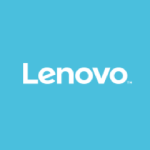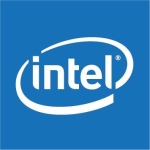What is our primary use case?
We use the servers to run our student information system. It's an accounting package within the bursary of the university.
We are currently on generation 8 or 9. The solution is hardware, so it's deployed on-prem.
Apart from users, there are five people that interact with the hardware directly. There are others who interact with the services that run from these servers. It's a school environment, so there are about 30,000 or more students and staff.
Previously, when we were using Zimbra for email services, it was run locally. We have stopped using that because we subscribe to Microsoft Office 360 email services, which run from the cloud. That has been taken off the servers.
Now that other applications are being developed, we hope to eventually be able to cater for the different administrative and academic departments in the university. We are hoping that some of this hardware will definitely have to be replaced. Of course, that will depend on the budget and the availability of funds that the university management is willing to make available. But it's going to be a step-by-step thing. There has to be planning and then budgetary provisions to be able to take care of these items.
We are just customers. We don't have a direct link with HPE, but through the HPE product suppliers. We have a new direct now, and in one of the meetings we had, he came up with the idea of finding a way to having that direct contact with HPE or Synergy and how perhaps we could patronize each other in terms of the servers, in terms of PCs for staff and students, and the kind of technical support that we can equally enjoy from HPE.
What is most valuable?
Where there is a need to actually expand on the capacity, it's easily done, especially when more memory is needed.
What needs improvement?
We have been experiencing a problem with the power pack. It gets fried and then we have to do a replacement.
There is a challenge sometimes with having quick access to some of these components when you need them. It takes a lot of time to get spare parts from genuine sellers.
You need the memories for servers. They're delivered. You put them in, and the system doesn't come up, so you have to return them. For me, that has been the major challenge.
In the day-to-day running, there's always room for improvement. If you need assistance in real time, it would be helpful if there was such a room where someone could be there and help you solve the problem in real time.
The number of people you are serving is increasing by the day, and they need immediate solutions to their issues. Sometimes you have limitations as to getting solutions to some of these issues that come up, but you are dependent on the information available to you. Being the product manufacturers also, I'm sure they have a lot of solutions to the different issues depending on the feedback they've been able to get from the field all across the world, especially those using their products. I think that would go a long way in helping.
For how long have I used the solution?
I have been using this solution for more than 10 years.
What do I think about the stability of the solution?
The main challenge we actually have is the issue of having a good, steady power supply. Whenever there's a power outage, it forces the server to go down. That in itself increases the rate of failure of the hardware. By implication, the services that have been provided are truncated at one point or the other. Management has promised to see how they can intervene in that respect, but that is left to be seen.
What do I think about the scalability of the solution?
The scalability is fine for the limited number of services and the need to actually scale. Because of this same power issue, I had to virtualize where we have to run different services on the same hardware server. That is where the issue of expanding the memory capacity came in.
In terms of the processor, we have not been able to do that. The reason is because you send for a part, it is brought in, you plug it in, and then there's a mismatch. Then the system doesn't run well. You have to return it. But I think it will expand our memory and expand the storage. We haven't been able to expand or increase the processing and the processor capacity. But we would be glad to have any other information we need to know or other skills that we need to learn to allow us to manage this equipment better and to maximize or to optimize their usage, that would be good enough.
How are customer service and support?
Technical support has been okay regarding looking for solutions on the internet. When you have certain challenges and make a post in the forum seeking an immediate solution, it all depends on who gets those queries and is able to respond. In most cases, we have been able to get the solutions from the past experience of others who have had similar issues that have been put in the repository.
On the whole, I think it's good enough even though we haven't been able to directly chat one-on-one or about issues.
How was the initial setup?
It can only get difficult depending on what application or operating system you want to install. Then it all depends on how good or how skillful one is with the particular application. But the installation and configuration is never a problem. There has never been a problem with the hardware that I can say, apart from the issues I have already mentioned.
We have different people for different specific assignments. For each team, we have a good number of people. We are thinking of expanding because the university is a multi-campus university, and it has about four campuses, even though the whole thing is being centrally run. We are thinking of having these services run 24/7, and then we would need to have more hands so no one is overwhelmed with the work on ground. Currently, for those manning the server, we have about five people.
What about the implementation team?
Implementation was completed by our own technical team from within the ICT directorate.
What other advice do I have?
I would rate this solution 8 out of 10.
Which deployment model are you using for this solution?
On-premises
Disclosure: I am a real user, and this review is based on my own experience and opinions.











